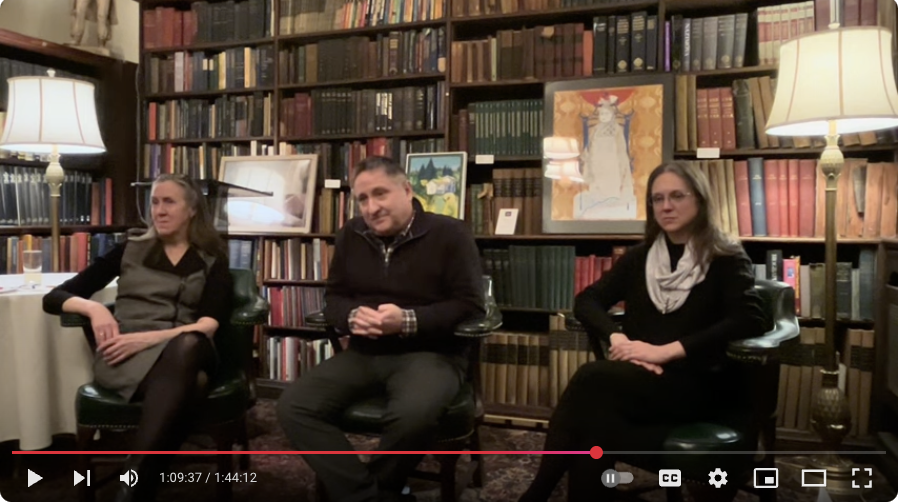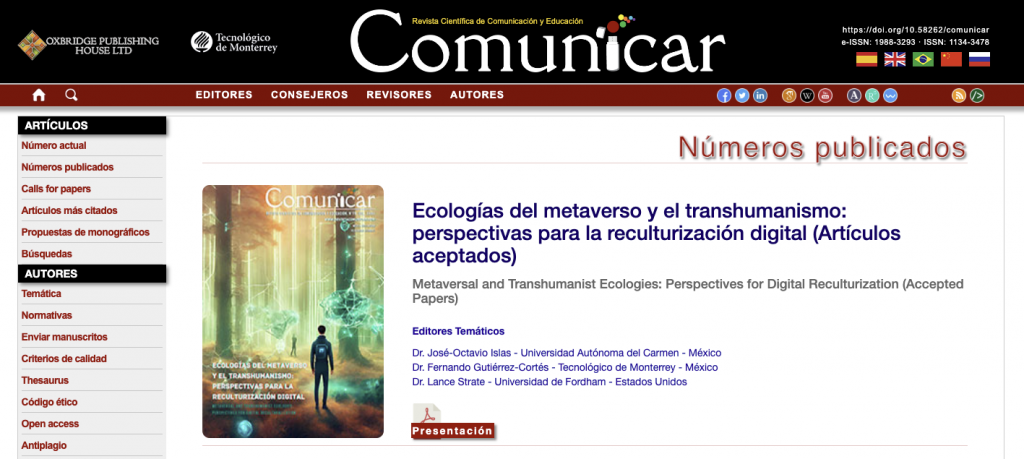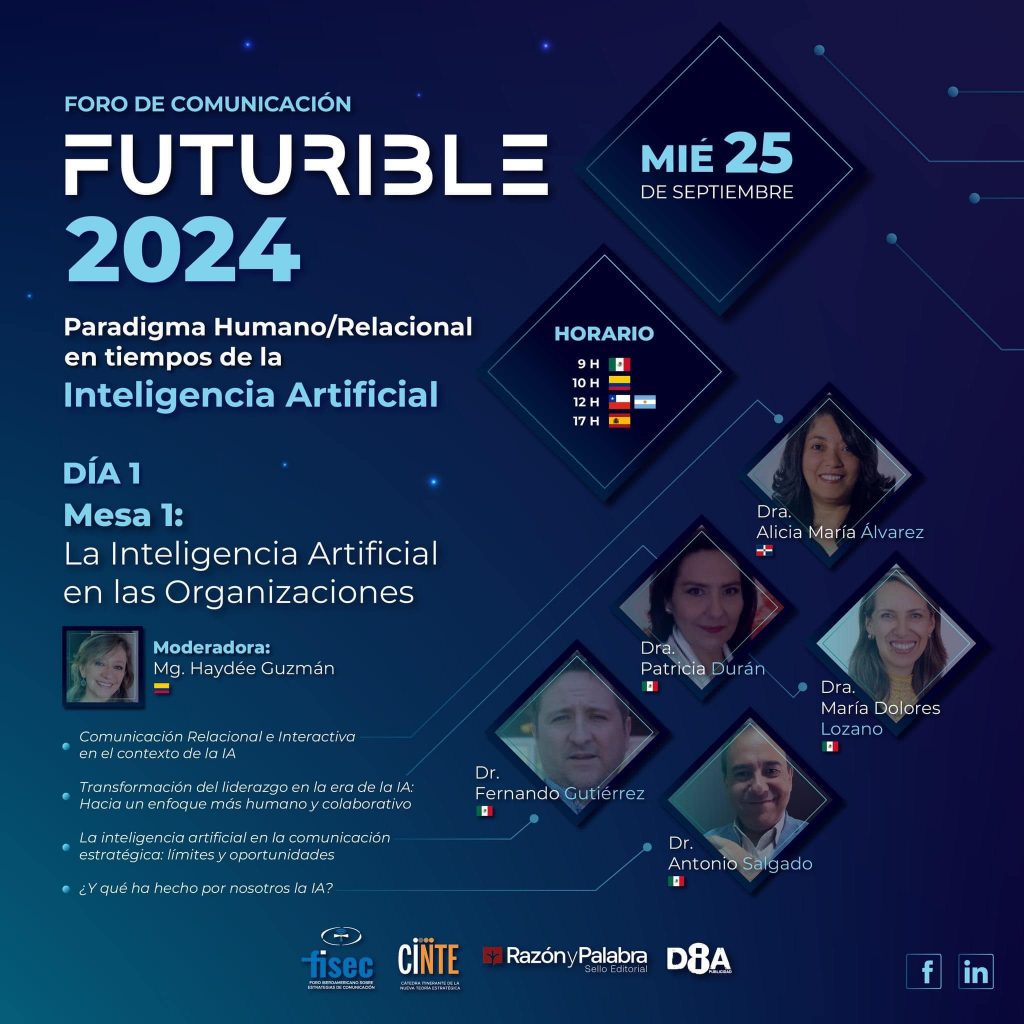I share a few reflections on a work that, despite being published in 1985, has not lost a bit of its analytical power. I’m talking about No Sense of Place, by Joshua Meyrowitz. Today, forty years after its publication, the book remains not only relevant for understanding the past but seems to regain strength in helping us comprehend the present and the future—just as Joshua envisioned.

From its subtitle—The Impact of Electronic Media on Social Behavior—Meyrowitz makes it clear that his intention is not to prophesy, but to offer a conditional theory. This means that when media change, information environments change, and with them, social roles and value systems also shift. This is not a deterministic stance, but rather a conceptual map for observing how the social order reorganizes itself when the structures of information access are transformed.
In a world marked by total digitalization—where we coexist with social media, artificial intelligence, video call platforms, and surveillance algorithms—his theory and analysis of the fading link between physical place and experience are more relevant than ever. We live connected, exposed, and constantly observed, in environments where being physically present is no longer required to have presence, nor is keeping secrets necessary to exercise power.
One of the most compelling contributions of the book—at least for me—is the development of the concept of the “triadic role”, which Meyrowitz introduces in Chapter 4 to explain how social roles are structured based on patterns of information access (Meyrowitz, 1985). Unlike traditional approaches that viewed roles as fixed social norms tied to status or group, Meyrowitz argues that roles are mediated by three key dimensions of information control, which form a triadic structure. These are:
• Group Identity, based on shared-but-secret information: Social groups define their identity in part through information shared internally and kept out of reach of non-members. This “shared-but-secret” information enables a symbolic distinction between “us” and “them.” Today, this is evident in intense digital fandoms on platforms like Discord, Reddit, or private WhatsApp groups. This shared-but-secret knowledge strengthens group cohesion, fosters a sense of belonging, and draws clear boundaries between “real fans” and outsiders. Being part of the group is not just about consuming content but accessing privileged knowledge.
Another role is:
• Socialization, based on controlled access to group information: Individuals learn to perform roles (such as adult, teacher, leader, etc.) through progressive exposure to relevant information. This socialization works as long as there is control over what information is shared, when, and with whom. When that control erodes, the learning or role-transition process is disrupted.
Example: Traditionally, becoming an “adult” involved gradual exposure to certain knowledge, topics, responsibilities, and roles, guided by parents, teachers, or authority figures. There was relatively clear control over what children were told, when, and how. Today, however, that control is severely eroded.
A 9-year-old with unrestricted access to TikTok, YouTube, or Instagram may be exposed to:
• Self-help and personal finance discourse (like hustle culture or crypto investing),
• Hypersexualized content,
• Videos with adult language, violence, or political satire.
This early access to information that was traditionally age-regulated alters the socialization process, as the child or adolescent may adopt stances, attitudes, or social expectations without yet having the emotional or experiential development to critically process them.
The third role Meyrowitz discusses is:
• Hierarchy, sustained by mystery and mystification: Roles of authority or power (like leaders, public figures, experts) depend largely on mystery: what is unknown about them, or what they know and others do not. This informational distance helps maintain hierarchical structures. When media reduce this distance (for example, by showing a president in their everyday life or revealing how a TV show is made), the authority role is undermined.
Traditionally, the authority of a leader—political, business, or academic—was partly upheld by symbolic and informational distance (formal attire, technical or guarded language). This created a sense of “mystery” or superiority that justified hierarchy. Today, we see political leaders recording TikToks with influencers or dancing to trending songs to win favor.
Meyrowitz redefines what it means to “have a role” in society—not as a fixed set of norms, but as a dynamic function based on three informational variables:
- Who knows what about whom,
- Where the line is between “onstage” and “backstage” behavior,
- How strong or weak the connection is between a physical place and lived experience.
These three axes are always deeply reshaped by media—and today, by algorithms. Consider social media: What does it mean now to be “young,” an “authority,” or “intimate,” when backstage behaviors become public and the public becomes private?
As Meyrowitz recently reminded us, the core of No Sense of Place can be understood as a reconceptualization of the role concept, from the perspective of media ecology. It’s no coincidence that contemporary authors like Nicholas Carr—author of The Shallows: What the Internet Is Doing to Our Brains—cite No Sense of Place as a foundational theory in his new book Superbloom (2025), for understanding the digital age. The logic of social order has changed because the way information circulates has changed.
Furthermore, I believe the play on words in the title is deeply insightful and revealing. No Sense of Place can be read as “without a sense of place,” but also as “without a place with meaning.” It alludes both to the loss of spatial logic and to a perceptual dislocation.
In the final chapter, Meyrowitz makes it clear that media have altered the relationship between physical place and social place, and with that, the way we understand belonging, intimacy, authority—even truth. This displacement, which he observed beginning with television and other electronic media, has now been exponentially amplified by the Internet, social media, remote work, distance education, metaverses, and more recently, generative AI. In all these contexts, we are still losing—or transforming—the “sense of place,” but also the sense of role, identity, and boundaries. It is worth highlighting here the book by our dear friend Eva Berger, Context Blindness: Digital Technology and the Next Stage of Human Evolution (2022). In it, Berger explores how the intensive use of digital technologies—especially social media and algorithms—is eroding our capacity to perceive, interpret, and respond to context in communication. Drawing from communication, cognition, and media ecology theories (inspired by McLuhan, Postman, and Meyrowitz), Berger argues that we are entering a stage of contextual blindness, where the loss of situational cues affects our empathy, social judgment, education, and democratic coexistence.
It is important to emphasize that the vision presented by Meyrowitz in No Sense of Place is not pessimistic—it is analytical. He invites us to understand the present without nostalgia, equipping us with theoretical tools to interpret the fluidity of the social.
No Sense of Place anticipated many of today’s dilemmas: the loss of control over the socialization process, the erosion of traditional hierarchies, the collapse of intimate spaces, and the emergence of fragmented identities. In this sense, Meyrowitz not only helped explain the transition from the television era but also laid the groundwork for critically analyzing contemporary digital culture. His work remains a key reference in communication, sociology, education, and cultural studies.
The rigorous style of the work—written, as Meyrowitz himself says, “not to scare off sociologists,” yet with a radical undertone—has allowed it to withstand four decades of critique, many of which were later retracted.
Meyrowitz has succeeded in consolidating his medium theory, a perspective that examines how the distinctive characteristics of each communication medium influence culture and social organization, beyond the content they transmit. On one hand, he analyzes how the choice of a particular medium affects specific interactional situations. On the other, he explores how changes in media foster or restrict modes of thought, group and religious identities, nationalism, gender roles, status differences, and even the design of built environments.
Today we can find compelling texts connected in various ways to his principal work, addressing contemporary topics such as ubiquitous surveillance, hacking, mediatization, technological convergence, intellectual property disputes, net neutrality, propaganda, and the Internet of Things. All of these contribute to a deep understanding of how media, in themselves, act as transformative forces in society.
Meyrowitz’s work has resonated with Ibero-American scholars such as Octavio Islas, Amaia Arribas, Carlos Scolari, Guillermo Orozco, and myself, of course. All of us have found in No Sense of Place not only a useful theory for thinking about media beyond their content, but a compass to understand how technologies reshape social life, identities, and everyday interaction frameworks. His notion that media alter the boundaries between public and private, intimate and exposed, has been especially relevant in analyzing diverse phenomena such as mediated education, digital culture, changes in childhood, and new formats of power and visibility on digital platforms.
Today, when algorithms know more about us than our friends do; when intimacy becomes viral content; when presence no longer requires being physically “present”… No Sense of Place gives us a compass—not to return to the past, but to better navigate this ever-shifting present.
References
Berger, E. (2022). Context blindness: Digital technology and the next stage of human evolution. Peter Lang Inc.,
Meyrowitz, J. (1985). No sense of place: The impact of electronic media on social behavior. Oxford University Press.




